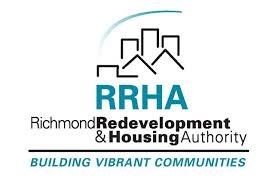RRHA changes rankle residents, activists who are most impacted
George Copeland Jr. | 9/27/2019, 6 a.m.
Three months ago, 100 local residents and activists called on the Richmond Redevelopment Housing Authority to bring more transparency, accessibility and accountability to the agency’s five-year plan for the city.
Last week, those residents and activists faced new restrictions at a RRHA Board of Commissioners meeting that saw critical resolutions adopted, including the board’s 2019-20 budget and bonds for the redevelopment of 556 apartments, with little warning given to the community to be the most impacted by the decisions.
The roughly 10 people who were admitted to the Sept. 18 board meeting were faced with a new rule that limited the seating capacity of the meeting room to 30 people, including board members. Efforts by community members to enter the meeting were further hindered by the number of RRHA staff members and private developers already present at RRHAheadquarters building at 901 Chamberlayne Parkway.
For Omari Al-Qadaffi, a Legal Aid Justice Center organizer who called on the board to delay the vote on the bonds to rework them to better benefit residents, it was a telling sign of both the direction of the RRHA’s plans for residents and the priorities of the board since the hiring of RRHA Chief Executive Officer Damon E. Duncan.
“The social justice community led the push to bring in the new CEO,” Mr. Al-Qadaffi said, “because we wanted to see the culture change in the housing authority.”
He said there were hopes that with new leadership, the organization would become more receptive and inclusive to the needs and concerns of the community.
“But it’s looking like they’re moving in the totally opposite direction,” Mr. Al-Qadaffi said.
RRHA Director of Public Safety Brian Swann explained that the change in meeting policy was made in order to comply with the building’s fire code. Mr. Swann, along with a police officer, stood at the doors to the meeting room, monitoring activity and letting in new attendees as people exited the building.
A former bureau chief for the Richmond office of the federal Bureau of Alcohol, Tobacco, Firearms and Explosives, Mr. Swann was hired by the RRHA in July, with his new role announced to the public one day before the board meeting.
The new rules stymied residents already caught flat-footed by the sudden change in the meeting agenda, though they still found people willing to hear their concerns. 5th District City Council candidates Nicholas Da Silva and Mamie Taylor spoke outside the building to residents worried about the future, with Mr. Da Silva managing to get into the meeting only after multiple developers finished their pitches to the RRHA board and left.
“It’s disappointing,” Mr. Da Silva said. “We could have done better than this. We could have had a larger meeting space.”
The budget and bonds are both part of the RRHA’s five-year plan to demolish apartments in low-income areas and replace them with privately owned mixed-income housing, potentially displacing thousands of residents in the process.
The lack of public input in the creation of this plan, including the board approving it weeks before the public comment period ended, is what led to the massive community pushback in July.
The plan, like the new position of RRHA director of public safety, is the creation of Mr. Duncan and would start in Gilpin Court. The RRHA has estimated that the project will cost around $500 million.
Mr. Da Silva and Mr. Al-Qadaffi also were critical of the handling of the bond issuances, which will affect apartment complexes in North Side, Gilpin Court and South Side. They were concerned when discrepancies were found between the resolutions given to the board to vote on and the ones presented to the public, with Mr. Al-Qadaffi pointing out the illegality of presenting resolution items to the public and changing them after board approval during the meeting.
Not everyone on the board was happy with how the meeting unfolded. Commission members including Veronica G. Blount, the vice chair; Samuel S. Young Jr.; and Heidi W. Abbott were critical of the accelerated and compressed nature of the approval process and how it has affected their ability to discuss the details of the resolutions.
“We need to have these conversations early,” Mr. Young said, lamenting the missed opportunity to secure better benefits for residents affected by the redevelopment, including housing choice vouchers and lower income requirements when “the deal structure is done at this point.”
Referring back to comments made earlier during public comments, Mr. Young said, “I was with Mr. Al-Qadaffi. I’d like to see more.”







